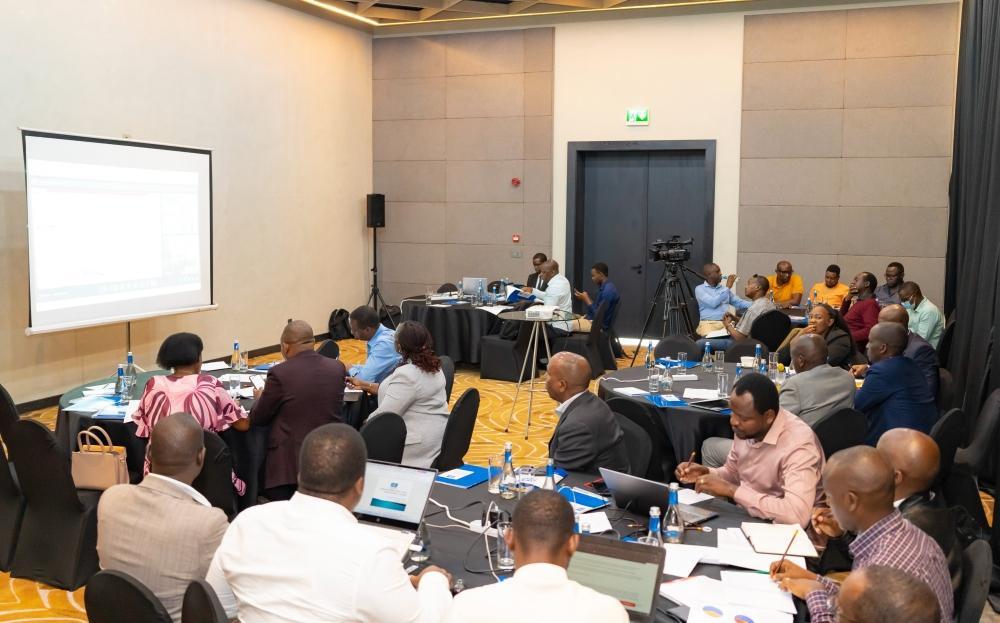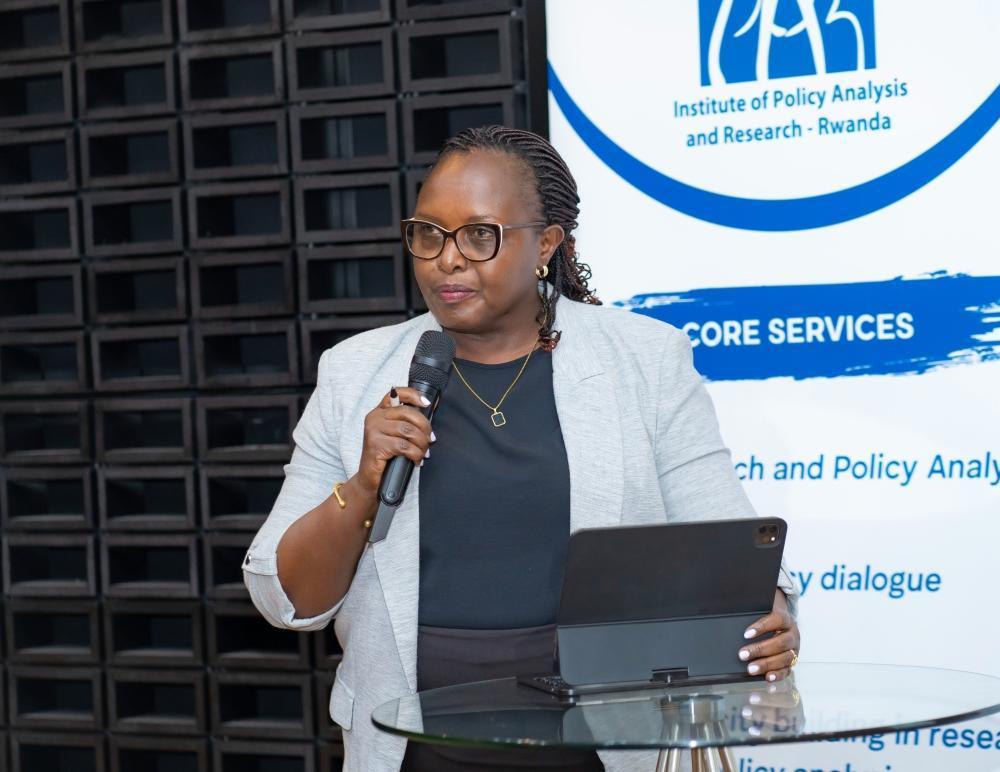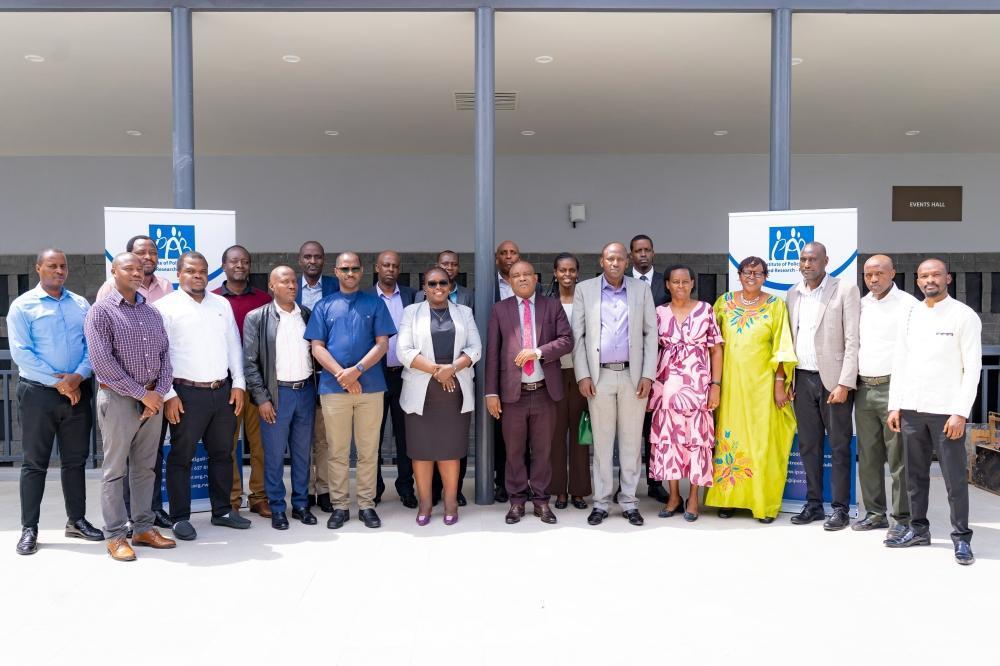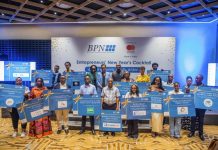Africa-Press – Rwanda. A new study by the Institute of Policy Analysis and Research (IPAR-Rwanda) has revealed that most businesses in Rwanda operate on a small scale, constrained by limited capital and basic tools, factors that restrict their ability to grow, hire more workers, and create decent jobs.
The study, which examined the inclusion of Micro, Small and Medium Enterprises (MSMEs) in the labour market, surveyed 857 businesses across seven districts—Kigali, Musanze, Rubavu, Rusizi, Nyagatare, Muhanga, and Huye.
MSMEs account for more than 90 per cent of enterprises in Rwanda and employ most of the non-farm labour force. Yet, the study found that “because of the constraints, their productivity and profits tend to be low, limiting their ability to offer stable and decent jobs.”
Most MSMEs are very small, with one to three employees making up nearly three-quarters of all enterprises. Small businesses with 4–30 workers represent less than a quarter, while medium-sized firms (31–100 employees) make up under 10 per cent.
Eugenia Kayitesi, IPAR-Rwanda’s Executive Director, said that while tourism and construction lead in job creation, the findings underscore the importance of business formalisation, experience, and participation in government support programmes.
Eugenie Kayitesi, Executive Director of IPAR–Rwanda, speaking during the dissemination event held in Kigali. Courtesy Photo
“Policy interventions must enhance access to finance, skills upgrading, and formalisation to promote inclusive and sustainable job creation,” she noted.
Low-skill, low-wage jobs dominate
The analysis shows that MSMEs are concentrated in trade (39 per cent) and services (28 per cent), followed by arts (12 per cent), agriculture (9 per cent), construction (7 per cent), and tourism (5 per cent).
Attendees pose for a group photo following the event. Courtesy Photo
Most jobs in these sectors are low- to medium-skilled: 43 per cent are manual labour, 24 per cent technicians, and only 12 per cent professionals—highlighting a mismatch with Rwanda’s vision for a knowledge-based economy.
Tourism was found to be the most dynamic sector for job creation, hiring an average of 56 new workers in the past year, followed by construction with 25. However, both sectors face high turnover due to reliance on short-term or seasonal labour.
Access to finance a key barrier
About 36 per cent of MSMEs find it “difficult” or “very difficult” to access loans.
High collateral requirements and lending rates remain major obstacles, while few firms manage to secure loans from commercial banks.
Skills and infrastructure gaps
The study also highlights a shortage of qualified workers and a mismatch between education and market needs. “Employability is a key factor in job creation. The question is whether we have the right skills to meet the demands of the sector,” said Angelina Muganza, Executive Secretary of the National Public Service Commission.
Outside Kigali, unreliable electricity, poor roads, and limited internet connectivity further constrain operations.
Low wages and limited social protection
Most MSMEs provide low-wage jobs, with average monthly salaries below Rwf200,000. While 74 per cent of firms offer written contracts and 82 per cent pay the minimum wage, compliance with broader labour standards such as pension and health insurance remains low.
Formalisation and experience
The majority (72 per cent) of MSMEs operate as sole proprietorships, limiting their collective capacity and scalability. However, 90 per cent are formally registered with the Rwanda Development Board (RDB) or the Rwanda Cooperative Agency (RCA), although informality persists in sectors such as art and agriculture.
The report recommends promoting MSME upgrading into higher-value sectors such as manufacturing, agro-processing, and ICT; expanding affordable financing; and investing in modular, demand-driven TVET training.
Other proposals include linking tax incentives to decent work outcomes, strengthening labour inspection, expanding digital market access, and promoting gender-inclusive job creation.
Bernard Nsanzimana, a researcher at the University of Rwanda, said gender data would help assess women’s participation in job creation.
Dickson Malunda, a senior researcher, emphasised the need for affordable finance, regional inclusivity, and practical skills development, while Cyprien Sikubwayo, Vice-Chancellor of ULK University, said the findings offer “a clearer picture of how universities can better align graduates with labour market demands.”
For More News And Analysis About Rwanda Follow Africa-Press








